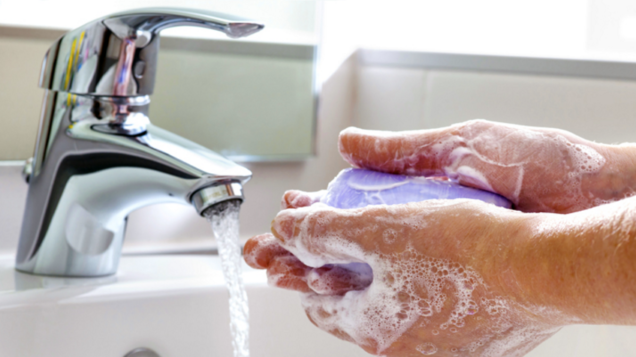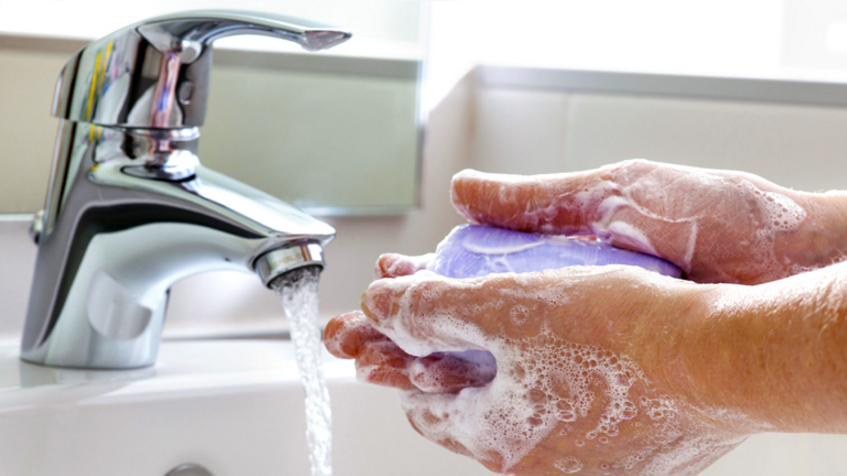The way many families in America wash their hands is about to change.
After years of debate by researchers, manufacturers and environmentalists, the United States Food and Drug Administration on Sept. 2 issued a final rule establishing that over-the-counter consumer antiseptic wash products containing certain active ingredients be banned from use.
“Consumers may think antibacterial washes are more effective at preventing the spread of germs,” but we have no scientific evidence that they are any better than plain soap and water,” said Janet Woodcock, M.D., director of the FDA’s Center for Drug Evaluation and Research (CDER). “In fact, some data suggests that antibacterial ingredients may do more harm than good over the long-term.”
What’s really the best way to keep things clean?
As a result of the FDA findings, companies will no longer be able to market antibacterial washes with 19 specified active ingredients after antibacterial hand and body wash manufacturers did not provide the necessary data to establish safety and effectiveness.
Some manufacturers have already started removing these ingredients from their products.
Scientifically speaking, the downside of antibacterial cleaners is right there in the name. Defined as “opposed to” or “against,” “anti” does as it says and kills all bacteria on the surfaces it comes into contact with.
Instead of focusing on fostering a balance of good and bad bacteria, antibacterial cleaners can lead to the creation of drug-resistant organisms known in the research realm as superbacteria. Too much of a “good” thing, like the antibacterial element in soap, isn’t necessary what’s best for keeping things clean.
Beyond that, research indicates the surge in antibacterial and antiseptic use is contributing to the development of bacteria capable of building up immunity to treatment.
The FDA’s final rule applies to consumer antiseptic wash products containing one or more the specific active ingredients, according to a news release, including the most commonly used ingredients – triclosan and triclocarban.
At least at this point, the ruling does not yet apply to hand sanitizers or wipes, or antibacterial products used in health care settings.
What has been done so far?
The judgment follows the issuance of a proposed rule in 2013. The proposition was spurred by research that suggested that long-term exposure to certain active ingredients used in antibacterial products — for example, triclosan (liquid soaps) and triclocarban (bar soaps) — could pose health risks, such as bacterial resistance or hormonal effects.
Under the proposed rule, manufacturers were required to provide the agency with additional data on the safety and effectiveness of certain ingredients used in over-the-counter consumer antibacterial washes if they wanted to continue marketing antibacterial products containing those ingredients.
The fate of three other ingredients – benzalkonium chloride, benzethonium chloride and chloroxylenol (PCMX) – was deferred to next year to allow for sufficient data collection.
Consumer antibacterial washes containing these specific ingredients may be marketed during this time while data are being collected.
What can you do?
- Washing with plain soap and running water remains one of the most important steps consumers can take to avoid getting sick and to prevent spreading germs to others.
- If soap and water are not available and a consumer uses hand sanitizer instead, the U.S. Centers for Disease Control and Prevention (CDC) recommends that it be an alcohol-based hand sanitizer that contains at least 60 percent alcohol.
- Consider using chemical-free cleaning products, preferably those that contain probiotics.
- Install a probiotic air purifier that works with your HVAC system to help replenish your indoor space with beneficial bacteria.
Contact us for more information on how to help improve indoor air quality and keep your home more clean and comfortable.




